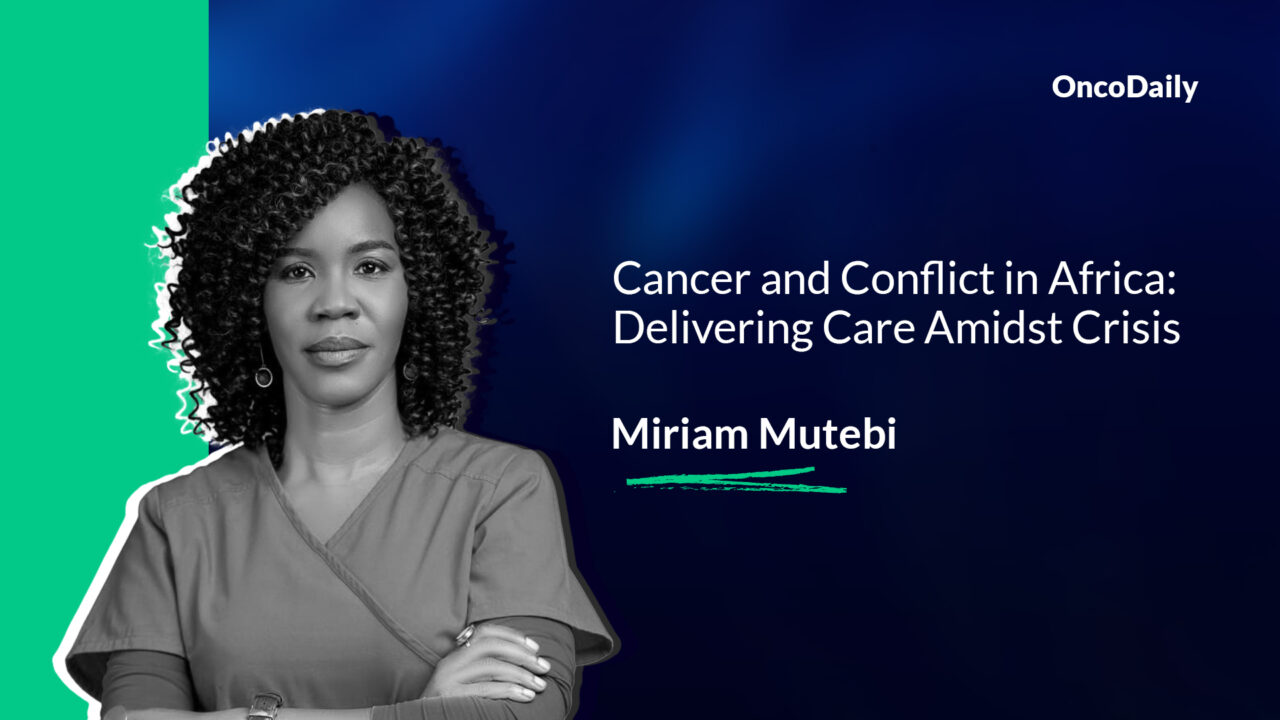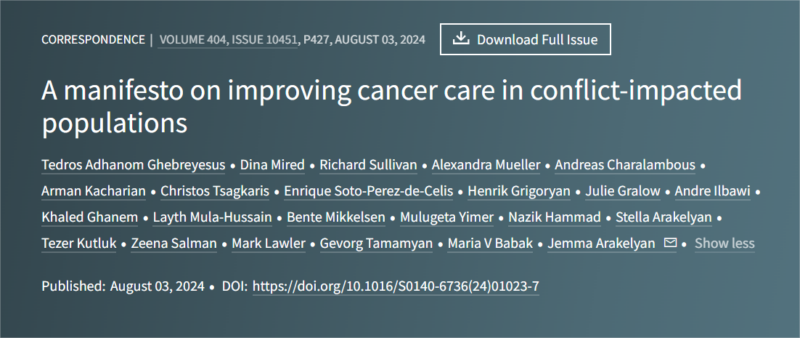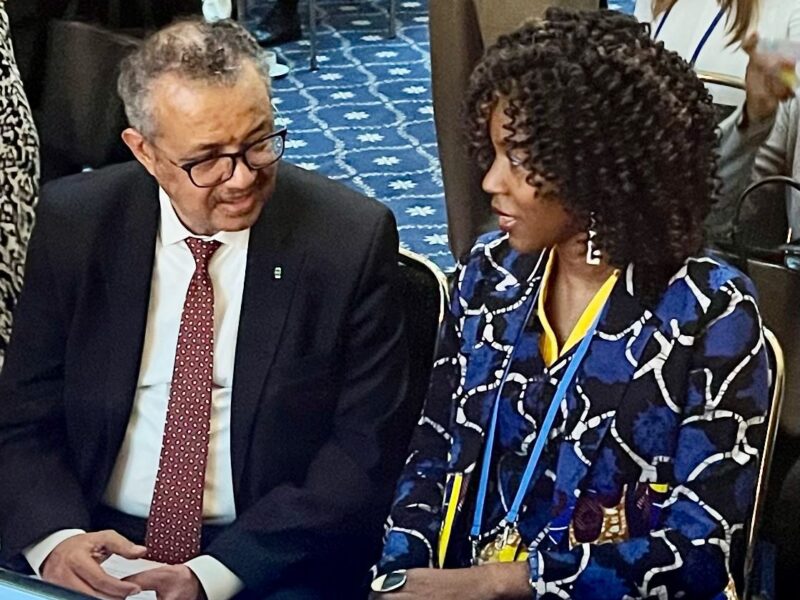
Miriam Mutebi – Cancer and Conflict in Africa: Delivering Care Amidst Crisis
Miriam Mutebi shared on LinkedIn about a recent paper by Tedros Adhanom Ghebreyesus et al. titled “A manifesto on improving cancer care in conflict-impacted populations” published in The Lancet.
Authors: Tedros Adhanom Ghebreyesus et al.

“Cancer and Conflict in Africa: Delivering Care Amidst Crisis.
As we reflect on the recently passed World Humanitarian Day (August 19), the challenges of delivering healthcare in conflict zones come sharply into focus.
In Africa, where nearly 40 million people are displaced due to various crises, natural disasters, etc., the task of providing essential cancer care becomes even more complex and urgent.
AORTIC- Africa is deeply engaged in addressing how to ensure cancer treatment reaches everyone, regardless of their circumstances. The need to rethink healthcare delivery in volatile regions, especially for displaced and pastoralist populations, is crucial.
While these issues might not always be at the forefront, we are committed to ensuring that access to cancer care remains a priority, even in the most challenging environments.
WHO Director, General Dr. Tedros Adhanom Ghebreyesus (pictured below), recently highlighted the alarming trend of attacks on healthcare facilities in conflict zones. In 2023 alone, over 1,520 such attacks were recorded, resulting in the loss of 750 lives and injuring 1,250 more. These disturbing realities make it clear that delivering healthcare in conflict zones requires innovative and resilient approaches.
The situation in Sudan offers a grim example, as highlighted by Nazik Hammad, Professor of Hematology-Oncology at St. Michael’s Hospital, University of Toronto. The ongoing conflict, which initially began in Darfur, has led to the collapse of healthcare infrastructure, severely disrupting cancer care services.
Hospitals have been attacked, healthcare workers displaced, and crucial treatments like radiotherapy have become inaccessible to many. Unfortunately, this scenario is not unique to Sudan; similar conflicts and disruptions are experienced in several other countries across Africa, underscoring the urgent need for coordinated efforts to address cancer care in conflict zones.
In response, AORTIC is leading initiatives to tackle these challenges, including the formation of a Special Interest Group (SIG) on Cancer in Conflict Zones and Humanitarian areas in Africa. This committee will focus on advocacy, capacity building, resource mobilization, and ensuring that even in the most turbulent times, cancer patients receive the care they need. A recent 7-point manifesto prepared at the first summit on war and cancer in 2023, provides frameworks to build on.
As we move forward, it’s vital to remember the spirit of World Humanitarian Day and continue striving to provide healthcare to those in the most difficult circumstances. The path is challenging but ensuring access to health and cancer care, even amid conflict, is a responsibility we must uphold.
See.”

Source: Miriam Mutebi/LinkedIn
Other posts featuring Miriam Mutebi on OncoDaily.
Miriam Mutebi is a Breast Surgical Oncologist and Assistant Professor in the Department of Surgery at the Aga Khan University Hospital in Nairobi, Kenya. She is also the Vice-President of East Africa of the African Organization for Research and Training in Cancer (AORTIC), treasurer for the Kenya Society of Hematology and Oncology (KESHO) and on the Board of Directors of the Union for International Cancer Control (UICC).
She is the co-founder of the Pan African Women’s Association of Surgeons and is part of the Kenya Association of Women Surgeons. She is an avid supporter for the education and support for women, especially in surgery and she aims to provide mentorship for women in surgery and to improve women’s health and surgical care in Africa. She is currently pursuing a pilot’s license in order to extend breast care services to marginalized areas.
-
Challenging the Status Quo in Colorectal Cancer 2024
December 6-8, 2024
-
ESMO 2024 Congress
September 13-17, 2024
-
ASCO Annual Meeting
May 30 - June 4, 2024
-
Yvonne Award 2024
May 31, 2024
-
OncoThon 2024, Online
Feb. 15, 2024
-
Global Summit on War & Cancer 2023, Online
Dec. 14-16, 2023
